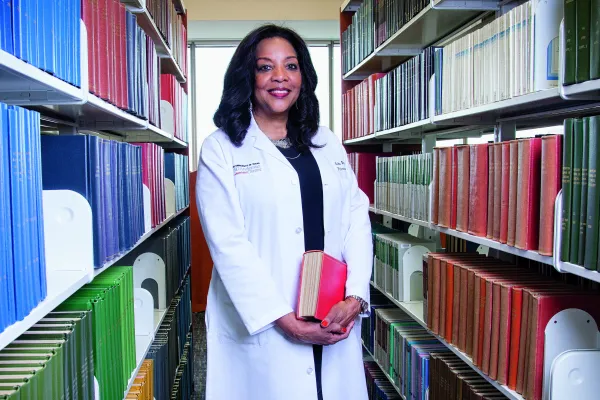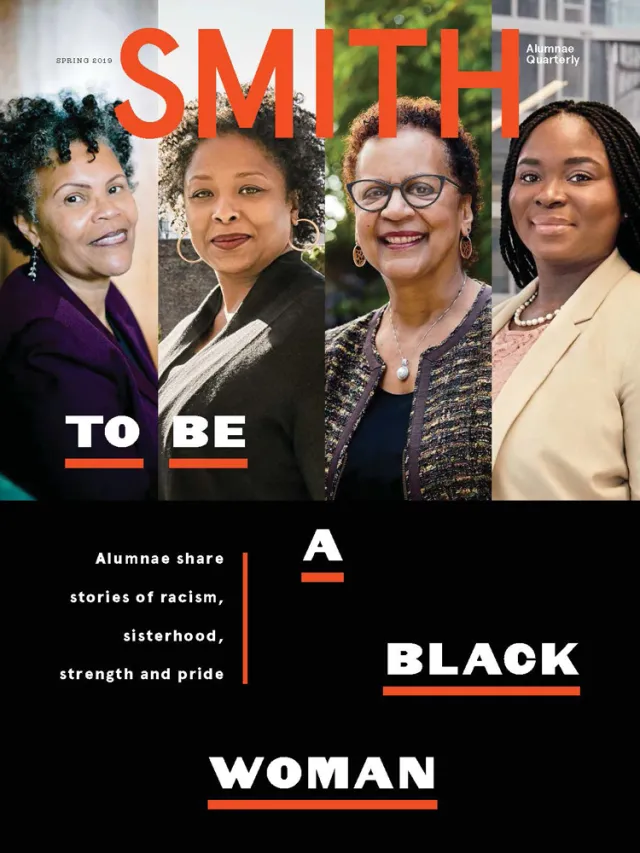‘Racism Is Their Problem—Not Yours’
Alum News

Published March 18, 2019
As I opened the door to my dorm room, trying to balance the irrepressible excitement of my first day at Smith with the mounting apprehension of being away from home, my eyes met the stares of my new (Caucasian) roommate and her mom, who sat huddled on her bed. I traversed the room with an outstretched hand, saying, “Hi, I’m Vi...” but before I could say “Vickie,” the mom stood up with hands on her waist and said, “Don’t touch my daughter’s things.” I graduated more than 30 years ago, but I still remember that excitement-busting, racist-laden introduction verbatim.
At that point in my life, an overarching shyness coupled with imbedded family morals that taught respect, honor and concessions to adults at all times prevented me from responding. Although I wanted to confront the mom and let her know that her racist assumptions of me were not right, I cowered and left the room to call my parents. “What makes that woman think I would steal her daughter’s things? Maybe I made a mistake coming here,” I said, choking on a flood of tears. “Vickie,” my mom said, “does this woman know you?” “No,” I said. “Then she will learn that you won’t steal her daughter’s things when they remain where she left them the next day, the next month, the next year,” Mother said. “You don’t have to prove anything to her. Just be true to who you are and be yourself.” “More important,” she said, “why would you allow anyone, let alone someone who doesn’t know you, to steal your dreams? Why would you give her that kind of power over you?”
My parents’ wisdom has underpinned my success in navigating a predominantly white and male-dominated world. Being grounded in who I am and knowing the value I bring to my profession and to larger society helps to insulate me from a lot of the noise of racism. That certainly doesn’t mean I am immune to racist encounters and pejoratives. I’ve had my share, including a patient who once referred to me as the N-word. However, I have learned that what a person calls me is far less important than what I choose to respond to. And how I respond can translate into a “teachable moment” that helps to quell the ugliness and ignorance of racism.

To Be a Black Woman: Alumnae Share Stories of Racism, Sisterhood, Strength and Pride
Deborah Archer ’93, “I’ve Picked a Lane. It’s Racial Justice.”
Billy Dean Thomas ’14, “I Felt Like I Was Being Tokenized”
Caroline Clark ’85, “I Am Not Black or a Woman. I’m a Black Woman”
Charlise Lyles ’81, “Who Came To Soothe My Soul? All My Black Sisters.”
Lori Tharps ’94, “I Yearned for a Comfort and Confidence in My Blackness”
April Simpson ’06, “If we listen to how others define us, we remain stuck” Q&A with Sandra Williams ’75, senior vice president at CBS Television
Deanna Dixon ’88, “I’m Proud That Our Students Hold Us Accountable”
Joyce Young ’75, “Challenging the Status Quo by Writing My Truth”
“What Excites You, Gives You Joy, Gives You Hope About Black Women in the World Right Now?
Sabine Jean ’11, “Am I the Only Black Person in Here?”
Stephanie Mickle ’94, “Black Women Can Rally Voters, Influence Elections and Win”
Photo: Charles Ford